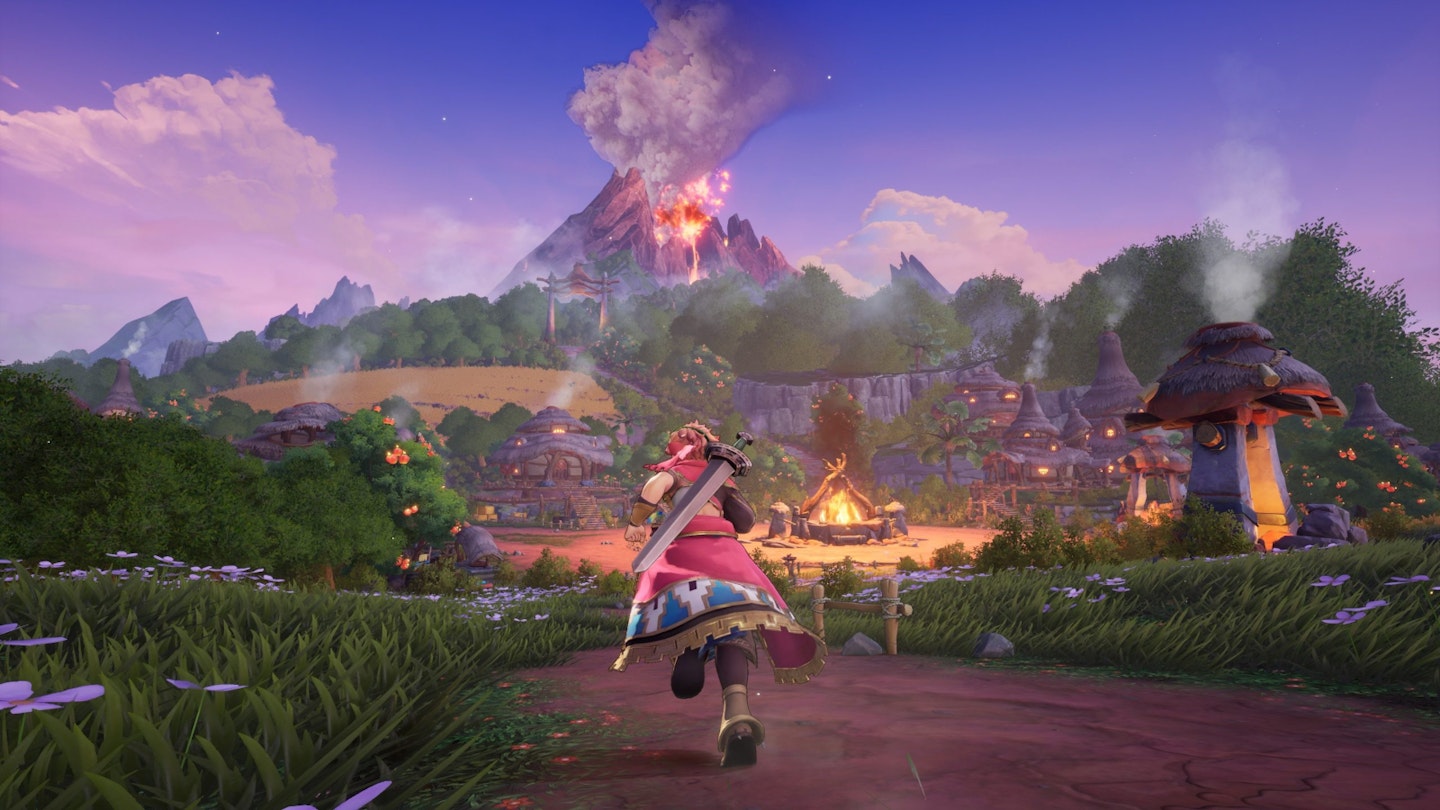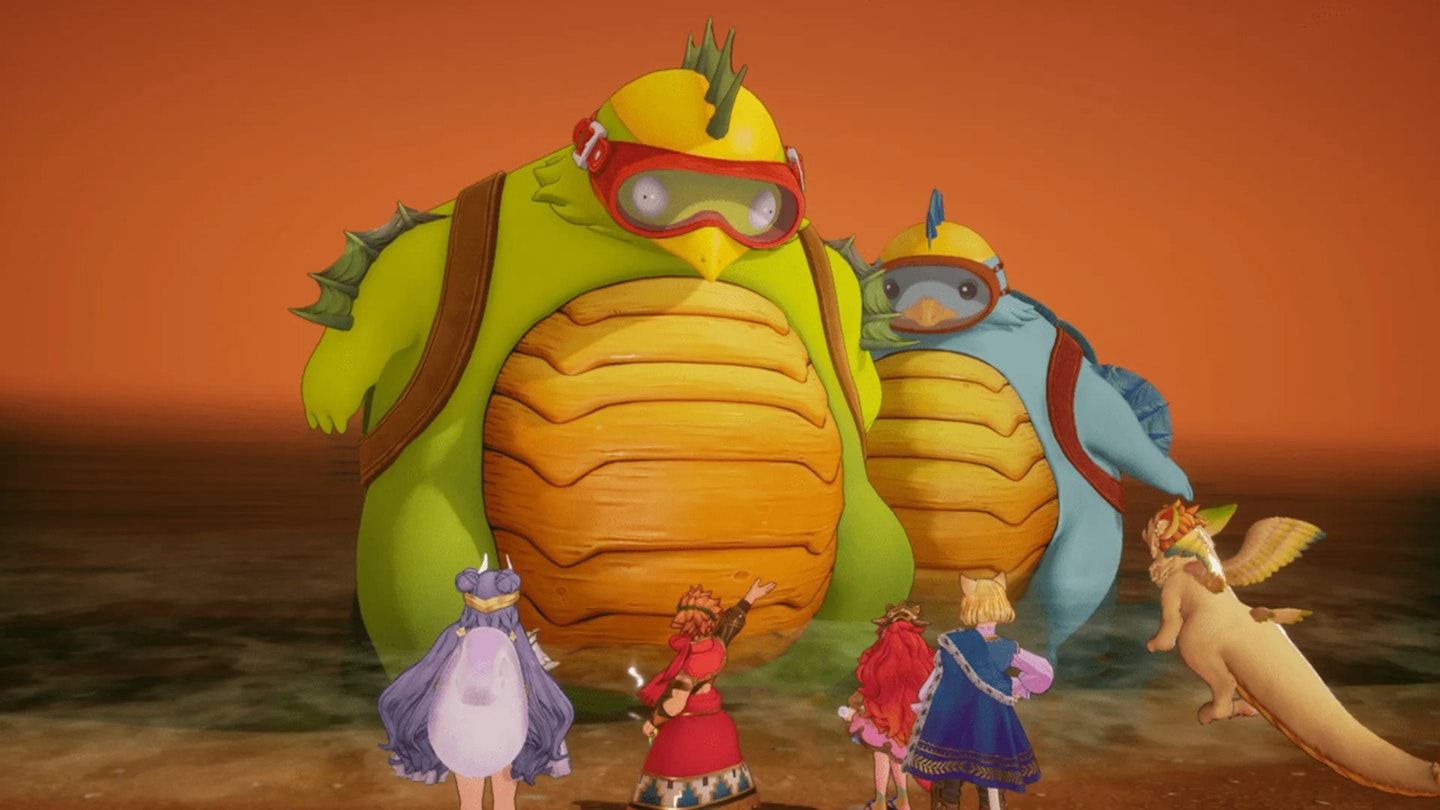Platforms: Xbox Series X|S, PS5, PS4, PC
The Mana series has always been an odd figure in the pantheon of JRPG greats. While it boasts a lineage dating back to the original Game Boy and SNES – where it began life as spin-off Final Fantasy Adventure and earned considerable acclaim with Secret of Mana, respectively – the decades since have been sparse for fans of the action-RPG series. Barring a few remakes and spinoffs of its own, it's been a staggering 18 years since the last all-new, core Mana entry, so there's a lot riding on Visions of Mana.

Thankfully, for old fans and first timers alike, this is a delight, both a welcome return for the long-dormant series and a wonderful entry point for newcomers. While Visions taps into a lot of hallmarks of the series over the years, both thematic (a world governed by elemental forces, each embodied by avatar spirits, and an existentially pivotal tree that oversees the flow of those powers) and mechanical (the seamless real-time combat, the quick-access "Ring Command" menus making items and battle skills immediately useable, and a host of combat classes for each playable character), there's no prior knowledge required to dive into this sumptuous fantasy world.
Players chiefly control Val, a "Soul Guard" guiding a group of Alms to the Mana Tree. It's a simple enough quest – borderline generic, at the outset – but one with a darker twist: the Alms are to sacrifice themselves to maintain the flow of mana to the world. There's a wilful juxtaposition throughout between the Alms, each representing one of the eight core elements, being positively joyful at the honour of the role, and the actual gravity of their impending fate. There's a twist – of course there is – but it all adds a necessary tinge of darkness and mystery to the otherwise bright and cheery fairy tale world.
It's deceptive, almost, especially given the game's visual approach, a mix of candy-coated cuteness and beautifully designed characters painted in pastel watercolours. It feels like a real evolution of the earlier, pixel art Mana games, with Visions of Mana's cast all fantastically realised with lush detail in costume and accoutrements that far exceeds the standard 'anime game' aesthetic. The exacting level of attention extends into the shifting character classes too, with the roster taking on entirely new forms whenever they swap the Elemental Vessel – key artifacts with plot and gameplay applications – they're currently equipped with. Each form is as lovingly crafted as a character's default design, making for a real fashion show of a game.

The class system can see Val shifting from his default swordsman role to a heavily armoured Aegis knight, designed to serve as more of a tank to suck up damage from enemies and leave allies to mount a counterattack, or a Rune Knight able to enchant his greatsword with various elemental attributes, among many others. Ingeniously, the same Elemental Vessel affects each party member differently – the item that turns Val into a Rune Knight will transform Careena, a young dragon woman, from a spear-wielding priestess to a speedy up-close Dancer brandishing razor-fans, or Morley, a feline fencer, into a Nomad capable of laying traps for enemies.
Visions of Mana packs in plenty of depth and an unexpected degree of challenge that belies its adorable art style.
Half the fun is in figuring out each party member's unique forms, and thanks to being able to switch your actively controlled character at will, you'll get a real feel for how they work in practice. And, with each class for each character boasting its own set of upgrades and abilities, it makes for a ridiculously versatile and fantastically dynamic battle system. Figuring out which combination of heroes and classes works best for a given encounter, or which strange alchemy of skills gives you the greatest advantage, adds an unexpectedly deep level of strategy and planning to Visions of Mana.
Unfortunately, for all it gets right, it still can't avoid some of the structural pitfalls of the genre. Notably, Visions suffers from a sense of padding as you progress into the later chapters of the game. Assorted side quests provide worthwhile distractions at times, but there's altogether too much backtracking in places, often for meagre rewards or as an excuse for level grinding. Similarly, a dichotomy between exploring semi-open fields and the tightly controlled towns and dungeons where the bulk of the story happens makes the game feel like one of two halves – especially when baffling mechanical decisions like being able to air-jump in fields but not in towns is considered.
Thankfully, its likeable cast, compelling story, and fantastic combat systems tend to outweigh those problems. Visions of Mana packs in plenty of depth and an unexpected degree of challenge that belies its adorable art style, making for a marked return to form for Square Enix's oft-overlooked series. Hopefully it won't be another 18 years until the next entry.
